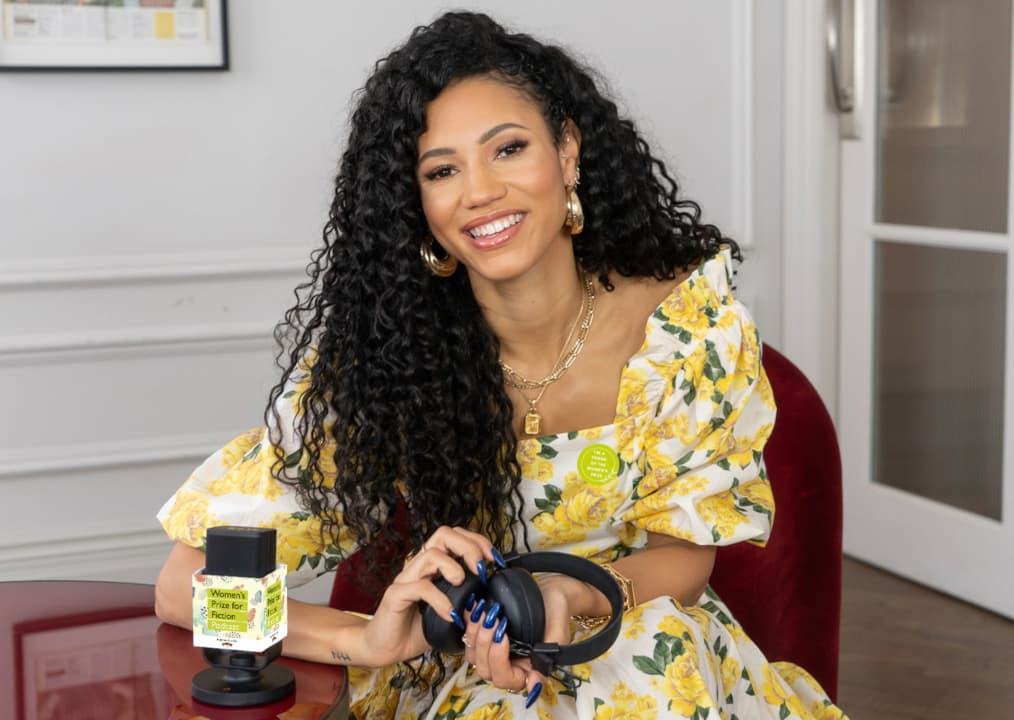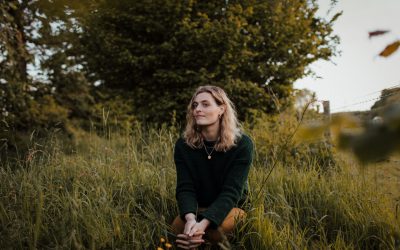
How to pitch your novel
Preparing to Pitch: The novelist salesperson “Can you summarise your novel in a sentence or two,” my marketer, Eloise asks,…

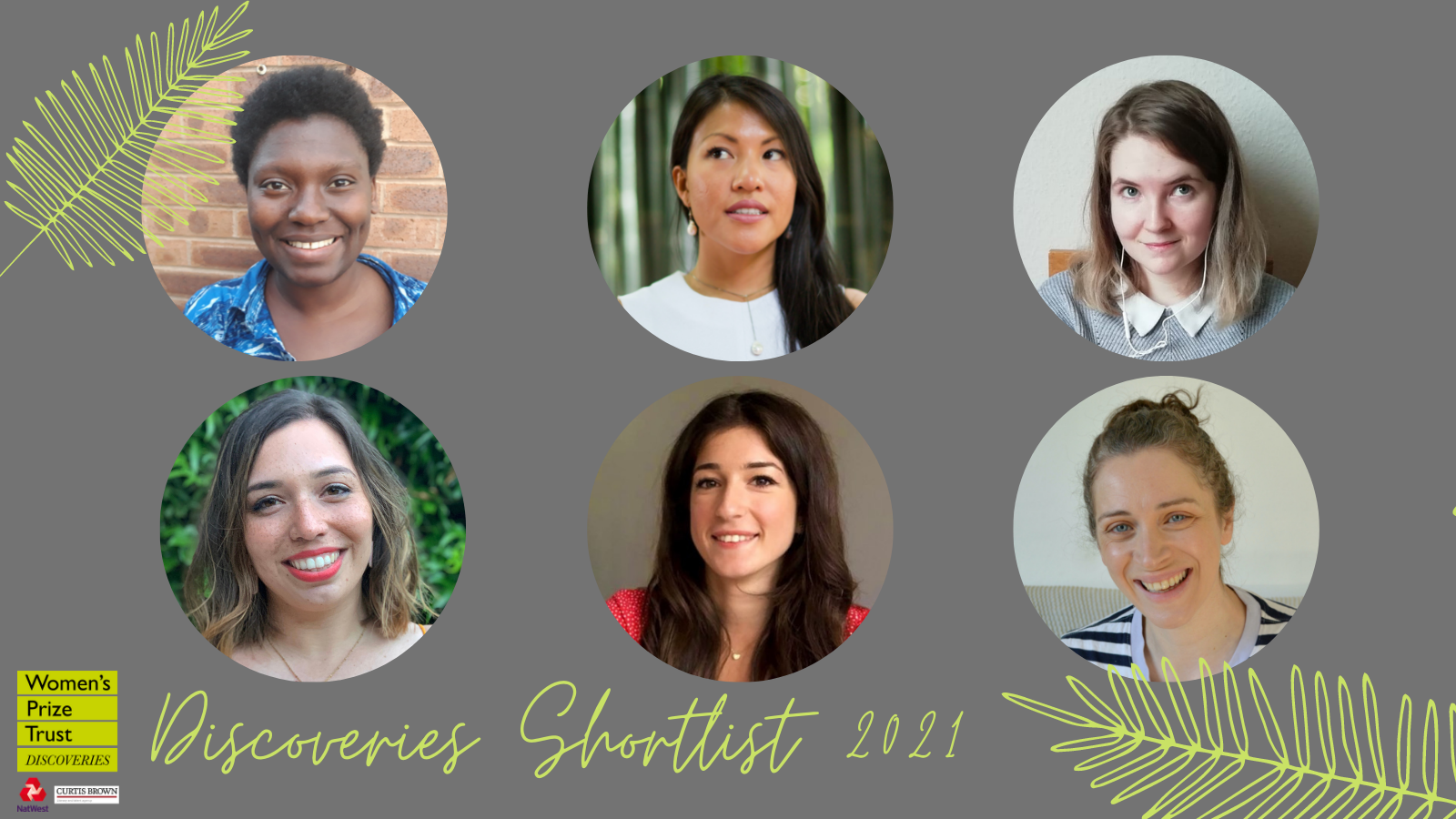
The Women’s Prize Trust’s Discoveries, powered by NatWest and Curtis Brown, is an ambitious writers’ development programme offering aspiring female writers of all ages and backgrounds support at the start of their creative journeys. We were thrilled to reveal our inaugural Discoveries shortlist of six new women writers in 2021.
This list boasted a diverse range of genres and themes from six distinctive voices, including a British-Ghanaian writer now based in Gloucestershire, a young writer who began with Taylor Swift fan fiction, and a translator. Also in the mix was a Scottish writer who has an MA in Creative & Life Writing from Goldsmiths, a British-Iranian writer navigating her 20s in London, and a fundraiser who works at the V&A. Their writing spanned from 15th century West Africa to Texas via New York; from an empty flat where we find an obsessive cleaner to the job interviews of a woman whose name is continually mispronounced; from a Scottish youth hostel to the fantasy world of the undead.
The Discoveries judges were chaired by author and Founder Director of the Women’s Prize for Fiction Kate Mosse, with Curtis Brown Creative’s founder and managing director Anna Davis, bestselling author of The Girl with the Louding Voice, Abi Daré, literary agent Lucy Morris and Director for Nottingham UNESCO City of Literature Sandeep Mahal.
Kate Mosse, Chair of Discoveries Judging Panel, Novelist & Founder Director of Women’s Prize for Fiction, said:
“It was a tough decision to whittle down our longlist to only six, but it was a discussion full of admiration, of celebration and of excitement. We were looking for promise, for imagination and distinctive voice, for diversity of genre and experience, age and background, but most of all for writers at the beginning of their writing journeys with something special to say. Some have been writing for a while and so are the right place to take things forward, others picked up their pens for the very first time as part of Discoveries. We’re delighted that Curtis Brown literary agency and creative writing school are offering a range of mentoring and writing support initiatives and look forward to seeing what each of these six writers will do next. A huge thank you to my fellow judges – Abi Daré, Anna Davis, Sandeep Mahal and Lucy Morris – and congratulations to all the authors on our inaugural Discoveries shortlist.”
The six writers shortlisted were offered personalised mentorship packages from a Curtis Brown agent or industry expert tailored to their needs, and a free place on a Curtis Brown Creative’s writing course. They were also invited to attend the 2021 Women’s Prize for Fiction ceremony in September and gifted access to NatWest’s Business Builder tool, Women in Business events and a financial health check. The winner was revealed on June 9th, with the offer of representation by Curtis Brown Literary Agency, a cash prize of £5,000, and desk space in a NatWest Accelerator Hub to write.
“Lorna Elcock takes us on a wonderfully rich and evocative journey across Loch Rannoch and gives an impressive insight into human relationships. Under the Light, Yet Under is beautifully written, understated yet incisive; the opening story is sad, raw and honest but also warm and hopeful. We loved every single page and can’t wait to read more.” Sandeep Mahal, Discoveries Judge

What initially inspired your novel-in-progress?
My novel began as a short story about three children in the 1950s, being got ready for bed in their cold basement room by their fierce grandmother. I was writing another story then about a woman walking in a forest in central Scotland in the 1980s, and I began to see that she was the eldest of the children from the 1950s. She was also, I realised, loosely based on my brilliant mother, who had spent part of her childhood living in youth hostels. Here, then, were three children growing up in a youth hostel, and here was one of them as an adult. What had happened in between?
And so it became apparent that I wasn’t writing short stories at all. What I was looking at was a novel about how this woman in the 1980s came to be living the particular life that she did.
It was a bit worrying – I didn’t want to write a novel. I had failed at novels before . . .
Where do you like to write?
I write anywhere. Mostly because of circumstance – I have a small child – but also out of a fairly strong belief that if you give yourself conditions which must be met in order for the work to happen, you are putting barriers in your own way. (In an ideal world, of course, there would be somewhere tidy, silent, comfortable, good for your back, smelling of coffee, with nobody asking you what their dinner was going to be.)
What is your favourite novel by a female author?
I have a romantic attachment to Mrs Dalloway by Virginia Woolf.
Which woman writer inspires you most and why?
I’ve found this difficult to answer, because it’s been hard to think of any one particular woman. What I do think of – what inspires me – is all of the women who have written, who have decided to write. I think of all of their different lives. I think of how they each gave themselves permission to say something, and of how they each went ahead and said it. We are not supposed to say things. We are not supposed to have things to say.
“Lucy Keefe delivered her story with a confidence that demonstrates her mastery of the genre. We loved the world building, the sharp and at times funny prose and the quirky characters. We are very excited for the future of this book and for Lucy.” Abi Daré, Discoveries judge

How does it feel to be shortlisted for Discoveries?
It’s very exciting to find out that something I wrote is good. In early 2020, I realised that I wanted to write books that I enjoyed writing, regardless of whether anybody else liked them, so it’s pretty vindicating to find out it isn’t just me! Being shortlisted makes me say, “Wait, no, I really am quite good at this then.” Being able to say I was shortlisted for Discoveries will be a mood-booster probably for the rest of my life, even if shouting “You can’t bite me I’m shortlisted” does not have any impact on my cat.
What’s the best piece of writing advice you’ve ever received?
My friend Eleanor created a spreadsheet for writing screenplays, and the idea of brutally forcing myself to write 1000 words a day really propelled me through writing Pantheon. My favourite film is John Wick, the character of John is described as a man of “focus, commitment, and sheer will” – a philosophy which I have taken to heart with writing. To me, writing is like fitness, you just have to keep working at it. Once I focused on writing a total number of words rather than on making them perfect, I found it much easier to forge forward with different writing projects. Writing things that I want to read has also been essential to me, if I don’t want to read it – why should I expect anyone else to?
Where do you like to write?
Anywhere! I don’t believe that there’s ever a perfect time or place to write, and once I accepted that I found myself more open to creative ideas. I’ve written on my phone on the bus, at my desk at work at lunch times (and occasionally in the back of meetings). Writing is also a process that happens as much in your head as on a page or screen, so when I’m out for a run and I’m thinking about my characters – I count that too!
What is your favourite novel by a female author?
I really love The Manifesto on How to Be Interesting by Holly Bourne. I brought this to a book club where I was the youngest person by about a decade, and the oldest member was in her 80s. Everyone loved it, because it captured the experience of teenage life so perfectly, and regardless of what decade we were born in we all related to that experience. I also loved the fact that the protagonist is not always right. She makes enormous mistakes which leave you shouting “why are you doing that” at the page. It shows how aware Bourne is that her character is not perfect and doesn’t know everything, she’s flawed in just the same way I was at 16.
“We loved Nana Afua Pierre’s vision and imagination, we loved the beauty and skill of her language and the quality of her description – we were transported utterly to a very different place and time.” Kate Mosse, Discoveries judge

What initially inspired your novel-in-progress?
My inspiration for this novel came from a conference I attended in Accra, Ghana about 11 years ago. Historians, cultural heritage shapers and academics from Europe and Africa discussed Africa’s potential in shaping its own cultural heritage and refocusing the lens of history. An image of nomadic merchants leaving their journals buried in the sand near abandoned wells sowed the seeds for this story and some other stories I’d like to work on once I finish this novel. There are also loose ties to my own family history in terms of the plot development.
I think there is something powerful in telling stories from the African continent before Transatlantic slavery took hold. I wanted to recreate the beauty, hardness, and tenacity of the times through these characters and their environments.
Where do you like to write?
I love writing in my friend Katy’s garden. I attend a weekly writing group with three fantastic women. We are writing sisters. When we write together, the world is still and I can enjoy writing for writing’s sake. It’s a lovely nurturing environment. My two-year-old plays without any major meltdowns and it’s a very relaxing experience.
Outside of this beautiful bubble, the situation is totally different. Novel-writing used to take place in Cheltenham Social History Library. Since having my daughter, I write exclusively at home on our family computer. You’ve never lived until you’ve interrupted a seven-year-old boy (my son) blowing things up on Minecraft, or in fact pushed a grown man (his father) off his fantasy football manager game or some form of 34-bit world domination.
What is your favourite novel by a female author?
I really love Arundhati Roy’s The God of Small Things. When I read it, I thought she had such a mastery of negative space. She can take you to such depths of loss and wanting that it makes your stomach churn. In some fantasy world, if I could combine that with the opening of Zora Neale Hurston’s Their Eyes Were Watching God and the punchy impact of Margaret Atwood’s The Handmaid’s Tale, I’d be writing superhero.
“Emma van Straaten is such an exciting new talent. Heartstring presents a deliciously sinister premise, told with dry humour and precise observation – and her lead character’s voice is one that echoes in your head long after reading.” Lucy Morris, Discoveries judge

How does it feel to be shortlisted for Discoveries?
I am staggered and delighted. When I started writing Heartstring, I did so in the knowledge that nothing might come of it – it was perfectly possible that no one would find merit in my writing or would be interested in the story I wanted to tell (other than my husband, who thinks everything I write is wonderful). It can sometimes feel lonely and purposeless, though – writing is hard! It is therefore extremely buoying to discover that the first 10,000 words have piqued the interest of this incredible judging panel, and it has given me the confidence boost I need to keep going.
What’s the best piece of writing advice you’ve ever received?
Write what you want to read. This has essentially given me permission to keep at it, even if what I am writing seems unpublishable as I’m writing it! It has reminded me that despite any potential pitfalls – this draft not falling neatly into a genre, or having a main character people might not connect with or particularly like – it’s what I’d like to read, and that’s enough for me.
Alex Preston’s advice to write whenever or wherever you can has also been invaluable – I am just the type of person to become fixated on the idea of the ‘perfect’ writing environment (a shepherd’s hut with a special pen) but if you abandon this romanticised ideal of novel-writing, it’s actually very freeing. As a result, typing into a phone note while on the 430 bus from Putney to South Kensington has produced some of my best work!
Where do you like to write?
In an ideal world, a garret in Paris! The reality is more prosaic – I write wherever I can carve out a period of solitude. This used to be during my hour-long commute to work, tapped out into my phone, or at my desk during a spare lunch hour. During the pandemic, however, this has changed to the kitchen table an hour before I need to log on for work in the morning, where I type at my failing laptop as the world slowly wakes up. I also take the odd day of holiday here and there to devote to writing, which once I would have imagined taking place in a café with frequent cake breaks, but now actually spend writing on the sofa in our sitting room for a change of scenery from the kitchen table!
Have there been any particular challenges to your writing journey?
My writing has always been influenced by glimpses of ordinary, vivid life – strangers I see on the bus, overheard interactions at the office, idiosyncrasies of friends and relatives. The pandemic limited all of our lives so dramatically, that, unsurprisingly, my daily walk of the same route, obediently keeping my two-metre distance from all passers-by, and the tedium of working alone at my kitchen desk all day did little to fuel my imagination. This has undoubtedly made writing harder.
“Here is a writer picking up her pen to write for the very first time, which is what Discoveries is all about. Nilofaur Tabatabai has such a fresh voice and a distinct point of view, with a really engaging protagonist and clear sense of purpose – we can’t wait to see how this novel develops.” Kate Mosse, Discoveries judge

How does it feel to be shortlisted for Discoveries?
I am in complete shock! I am incredibly honoured to be on the inaugural shortlist amongst such talented women writers. These words started off as jumbled thoughts in my head and landed on the page as my submission for Discoveries. I wrote these words in my bedroom alone with only the flicker of my candle to keep me company, so the fact that they have been read by such an incredible judging panel of extremely talented women is such an honour. To be shortlisted for the first writing prize that I have entered gives me so much encouragement to follow my passion and keep on writing.
What initially inspired your novel-in-progress?
I often don’t come across people like me, with my British Iranian background, in many of the books that I read. I wanted to write a novel that I could pick up and relate to that tackled growing up as an immigrant in the UK and living as a young woman in today’s society but from a fresh, witty perspective. I also wanted to write a novel that was a love story between a young woman and herself, rather than (spoiler alert) the heroine finding herself through a man at the end.
Which woman writer inspires you most and why?
Candice Carty-Williams and her novel Queenie really inspired me to start writing my novel-in-progress during lockdown. I devoured the book in a few hours and she really made writing feel accessible to me. After I read it, I felt inspired to actually start jotting down my thoughts about my own experiences, rather than telling everyone I wanted to be a writer and doing nothing about it. She tackled difficult topics such as mental health, heartbreak and growing up as a black woman in today’s society with such an effortless ease and wry humour that was refreshing. Unfortunately, I haven’t seen many protagonists like Queenie in fiction and I wanted to write something that represented my background and my experiences and to make my voice heard in a similar way.
Have there been any particular challenges to your writing journey?
Making the time to write in between having a full time job can be difficult. I’ve tried to be diligent and devote some time each week to writing anything, even if it’s a small amount.
“April Yee’s writing is an unusual and intoxicating mixture of intensity and detachment. We loved her wry, sidelong humour and skilful storytelling.” Anna Davis, Discoveries judge

How does it feel to be shortlisted for Discoveries?
I’m delighted and honoured to be among so many women brave enough to send stories into the world.
What initially inspired your novel-in-progress?
I sometimes meet online with other writers to freewrite. One prompt was the David Bowie lyric, “My brain hurt like a warehouse.” What came to me was a scene of a drunk man shooting in the outskirts of Austin and his wife, including her very specific first-person voice. The novel-in-progress fills in what came before and after.
What’s the best piece of writing advice you’ve ever received?
have received a lot of incredible advice from writers I admire. The earliest I received, however, did not come in the context of writing. When I was 15 years old, I interned at my local newspaper. I attended a corporate presentation of what appeared to be a gentrification project and returned to the newsroom full of scorn. One of my editors, Becky, stopped me. “Don’t be cynical,” she said. I think this is good advice for many arenas.
What is your favourite novel by a female author?
My most recent favourite novel is Raven Leilani’s Luster, which I found radical in the way it delivered the interiority of a woman on New York’s margins. Its themes are large: capitalism, motherhood, desire, what it means to be an artist.
Are you a budding writer? Learn more about how to enter our Discoveries programme yourself! In the meantime, why not get inspired with some of our brilliant writing prompts and author insights below.

Preparing to Pitch: The novelist salesperson “Can you summarise your novel in a sentence or two,” my marketer, Eloise asks,…

Jacqueline Crooks’ debut novel Fire Rush was shortlisted for the Women’s Prize for Fiction and has been described by the…
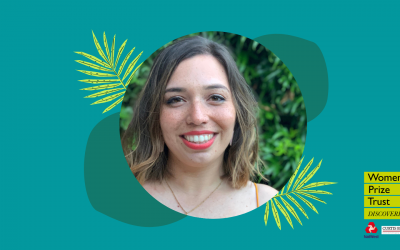
We are excited to announce our winner for Discoveries 2021, powered by NatWest and Curtis Brown, which seeks untapped female…
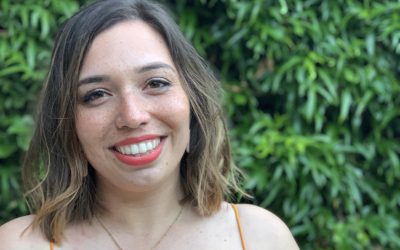
Our inaugural Discoveries winner, powered by NatWest and Curtis Brown, was Emma van Straaten. Emma beat over 2,300 entries to…
Tune into host Vick Hope and a line-up of incredible guests on our weekly podcast full of unmissable book recommendations.
